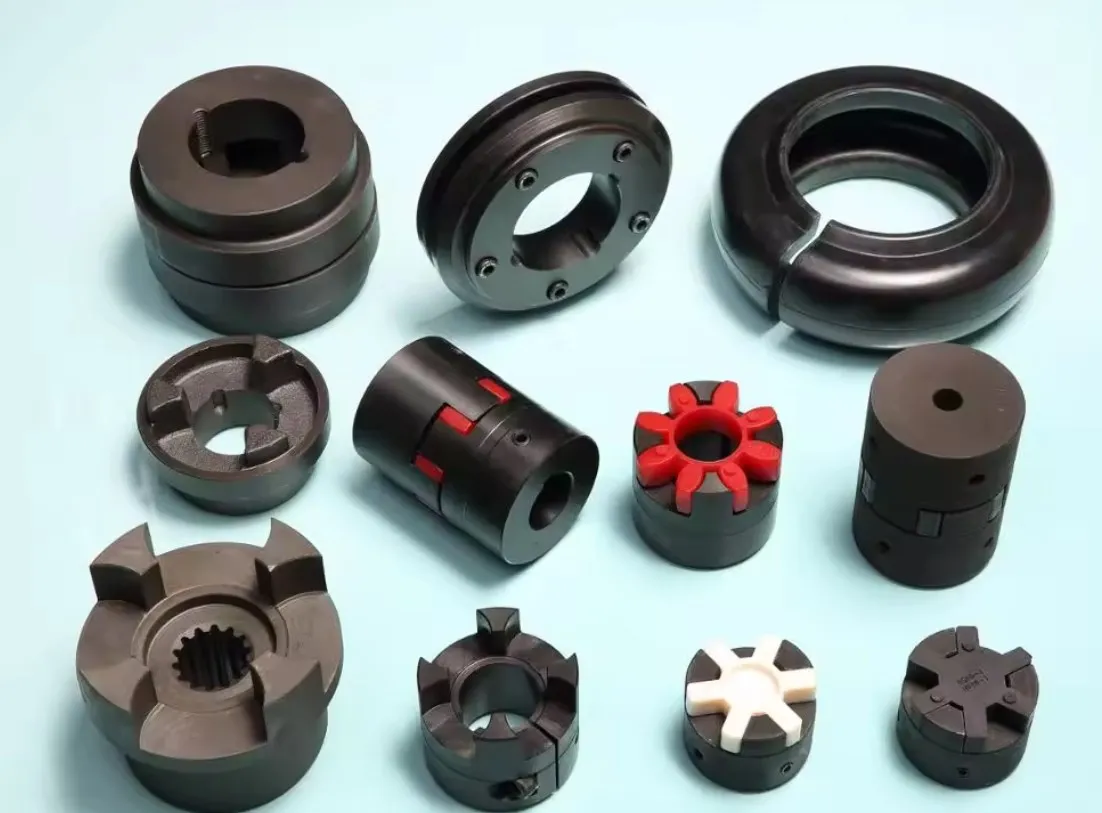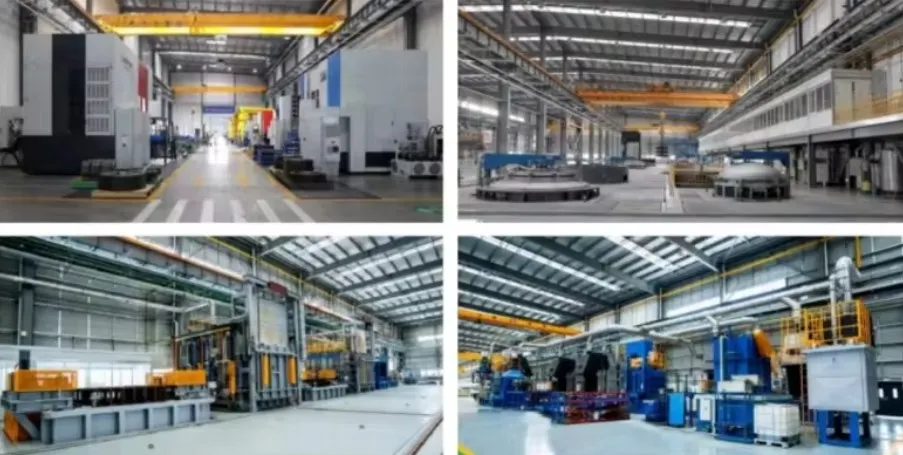Elastic Coupling for Water Pumps
Introduction to Elastic Couplings
Elastic couplings are critical components in the mechanical transmission of power within water pumps. They mitigate misalignment and absorb shock loads, thereby enhancing the longevity and reliability of the pump system.
Types of Elastic Couplings
There are various types of elastic couplings, each designed to cater to specific mechanical requirements. They include jaw couplings, tire couplings, and disc couplings, among others.
Importance of Elastic Couplings in Water Pumps
Elastic couplings play a pivotal role in water pumps by reducing mechanical stress and preventing damage to the motor and pump. This is essential for maintaining operational efficiency and minimizing downtime.
Material Composition
The materials used in elastic couplings are typically high-grade rubber, polyurethane, or composite materials. These materials are chosen for their elasticity, durability, and resistance to environmental conditions.
Design Considerations
When designing elastic couplings, factors such as torque capacity, speed, and environmental conditions must be considered. This ensures that the coupling can withstand operational demands without failure.
Installation and Maintenance
Proper installation and regular maintenance of elastic couplings are crucial for their performance. Incorrect installation can lead to premature failure, while regular inspections can identify wear and tear before it becomes problematic.
Performance Characteristics
Elastic couplings are known for their ability to accommodate misalignment, absorb vibrations, and provide torque transmission. These characteristics make them ideal for use in water pumps.
Application in Industrial Settings
In industrial settings, elastic couplings are used in a wide range of applications beyond water pumps, including conveyor systems, mixers, and compressors, highlighting their versatility.
Advantages of Using Elastic Couplings
Elastic couplings offer several advantages, including reduced maintenance costs, increased equipment lifespan, and improved operational efficiency. They are a cost-effective solution for many mechanical systems.
Challenges and Solutions
While elastic couplings are highly beneficial, they can face challenges such as material degradation and environmental impacts. Solutions include using advanced materials and protective coatings.
Future Trends in Elastic Couplings
The future of elastic couplings is geared towards the development of smart couplings that can monitor operational parameters and predict failures, thereby enhancing preventive maintenance strategies.
Case Studies
Several case studies have demonstrated the effectiveness of elastic couplings in improving the performance and reliability of water pumps in various industries. These studies highlight successful implementations and the benefits realized.
Environmental Impact
Using eco-friendly materials and sustainable manufacturing processes for elastic couplings can significantly reduce their environmental impact, aligning with global sustainability goals.
Comparison with Rigid Couplings
Elastic couplings offer significant advantages over rigid couplings, including better shock absorption and misalignment accommodation. This comparison underscores the importance of choosing the right coupling type for specific applications.
Conclusion
Elastic couplings are indispensable in the operation of water pumps, providing reliability, efficiency, and longevity. Their role in mitigating mechanical stress and enhancing performance makes them a critical component in various mechanical systems.

High Elastic Rubber Coupling
Shock Absorption
High elastic rubber couplings are designed to absorb significant amounts of shock, protecting the connected machinery from sudden load changes and operational vibrations.
Misalignment Accommodation
These couplings can handle considerable misalignment between connected shafts, ensuring smooth and efficient power transmission even in less-than-ideal alignment conditions.
Durability
Made from high-quality rubber materials, these couplings are highly durable and resistant to wear and tear, providing a long-lasting solution for mechanical connections.
Noise Reduction
The elastic properties of rubber significantly reduce operational noise, contributing to a quieter working environment and improving overall machine operator comfort.
Maintenance Efficiency
With their robust design and material composition, high elastic rubber couplings require minimal maintenance, thereby reducing downtime and maintenance costs.

What Are Flexible Couplings Used For?
Power Transmission
Flexible couplings are primarily used to transmit power between two rotating shafts, ensuring efficient and reliable power flow within mechanical systems.
Vibration Damping
These couplings help dampen vibrations generated during operation, protecting the connected machinery from damage and extending its operational life.
Compensating Misalignment
Flexible couplings can accommodate angular, parallel, and axial misalignment between connected shafts, maintaining performance even under misalignment conditions.
Shock Load Mitigation
They are designed to absorb and mitigate shock loads, preventing sudden impacts from damaging the machinery and ensuring smooth operation.
Noise Reduction
By dampening operational vibrations, flexible couplings contribute to noise reduction, creating a quieter working environment.

What Are the Three Types of Coupling?
Rigid Couplings
Rigid couplings are used in applications where precise alignment is required. They provide a solid connection, delivering high torque but are less forgiving to misalignment.
Flexible Couplings
Flexible couplings can accommodate misalignment and are used to dampen vibrations. They are ideal for applications where shafts may not be perfectly aligned.
Fluid Couplings
Fluid couplings use hydraulic fluid to transmit power between shafts. They provide smooth torque transmission and are used in heavy-duty applications such as mining and construction equipment.
Choosing or Customizing the Right Elastic Coupling
Determine Operational Requirements
Understand the specific operational requirements, such as torque, speed, and environmental conditions, to select the appropriate coupling type and material.
Evaluate Misalignment Tolerance
Assess the level of misalignment the coupling will need to accommodate, including angular, parallel, and axial misalignment, to ensure reliable performance.
Material Selection
Choose the right materials based on operational conditions, considering factors such as temperature, chemical exposure, and load-bearing capacity.
Size and Fit
Ensure the coupling fits the shaft sizes correctly and can handle the expected loads and speeds without compromising performance.
Environmental Considerations
Take into account the environmental conditions, such as humidity, dust, and exposure to chemicals, to select a coupling that can withstand these challenges.

HZPT: Leading Manufacturer of High-Precision Couplings
Founded in 2006, HZPT specializes in the development and production of high-precision couplings, ball screw support units, motor brackets, and motion modules. Our product line includes servo motor couplings, stepper motor couplings, miniature motor couplings, and encoder couplings.
Technologically Advanced
We leverage cutting-edge technology to design and manufacture our products, ensuring they meet the highest standards of performance and reliability.
In-House R&D Center
Our dedicated research and development center enables us to innovate continuously, keeping our products at the forefront of the industry.
In-House Processing and Testing Systems
We maintain complete control over our manufacturing process with in-house processing and testing systems, ensuring consistent quality and performance.
ISO 9001:2015 Certified
Our commitment to quality is demonstrated by our ISO 9001:2015 certification, reflecting our adherence to international quality management standards.
ROHS Compliance
Our products comply with ROHS standards, ensuring they are free from hazardous substances and safe for use in various applications.
We offer over 64 product lines, widely used in industries such as electronics, solar energy, photovoltaics, machine tools, packaging, mold making, medical devices, and printing. Our products have gained recognition and widespread use by top clients in Japan, the United States, Germany, Israel, Malaysia, Singapore, and Taiwan.
At HZPT, we are dedicated to providing high-quality elastic couplings that meet your specific needs. Contact us today to discuss how our products can enhance your mechanical systems and drive your business forward.